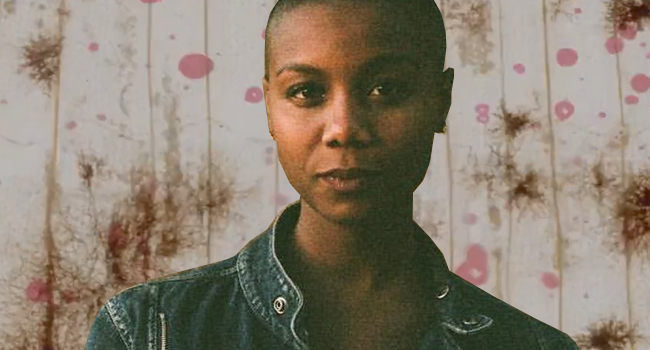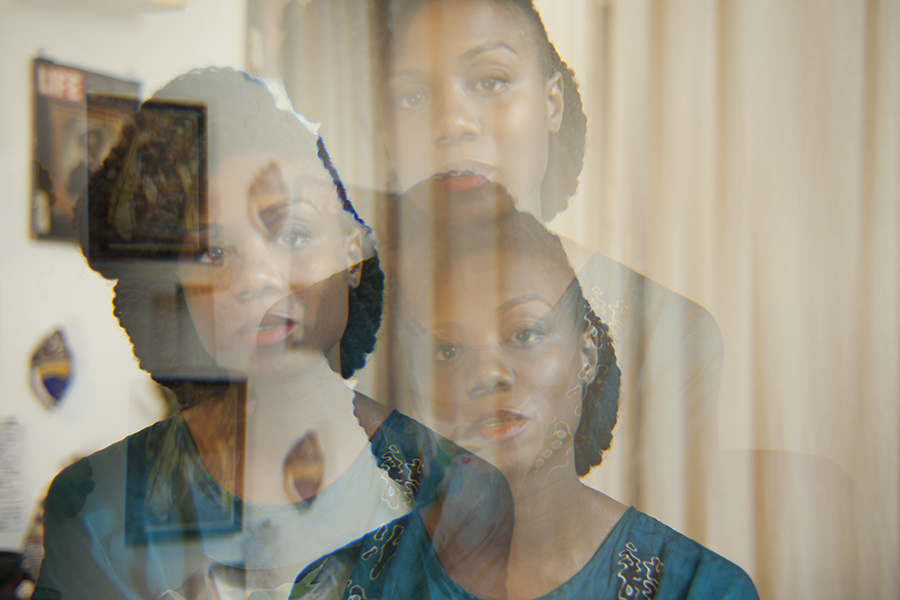
Art has always been a mode of survival for Ja’Tovia Gary. As a child, she says, acting saved her life. And though she’s moved on to other ways of expressing herself, art continues to be a great source of healing for her. She’s an award-winning, documentary filmmaker known for her intimate portrayal of marginalized voices. As a filmmaker, she shares untold stories from her perspective as a young, black artist, promotes understanding, and faces trauma with a courageous vulnerability that feels vital in today’s world.
It’s no surprise that Gary’s work is beginning to get attention. In 2017, she was named one of the “25 New Faces In Independent Film” by Filmmaker Magazine. And her short, An Ecstatic Experience is currently on display at the Whitney Museum of American Art in New York. The film is a mixture of archival footage juxtaposed with modern protests and it’s both deeply moving and painfully thought-provoking. History is something that is fascinating for Gary and a key component of her work — as she confronts past trauma as a way to move forward in the present.
“I’m not just interested in futurity,” Gary tells me. “I’m interested in the things that we’ve left behind.”
There are stories and voices that have been left out of the mainstream for a long time. And, in sharing these historically marginalized points of views and experiences, Gary hopes to shift the media status quo from being centered around one particular American voice (often white, male, and wealthy) to a more equitable chorus of voices. Because there’s power in telling your own story. It’s why Gary is working on a documentary right now in which she explores the neglect, addiction, and violence threaded through her own lineage.
“I think it’s so incredibly important to shine a light on these family circumstances, situations, and patterns so that we can begin to remake ourselves,” she says. “That’s how we begin to work towards a space of healing. To me, that’s what my film is about. A lot of people are like “Oh, you’re really fixated on trauma.” And I say, “No, I’m really fixated on healing.”
Ja’Tovia Gary’s love of performing and theatricality started at an early age, growing up in the south. She was raised in the traditions of the southern Pentecostal church, a force she found oppressive in some ways, but also, formative and beautiful.
“It was a hub of performativity,” she says. “I was steeped in this notion of performance, of being able to present yourself in a way where you can enrapture someone’s senses.”
And after a traumatic childhood, Gary found relief through performance. Art soothed the anxiety and panicked energy she felt inside. Her parents, especially her mother, encouraged this love of the theater. She thrived in a prestigious performing high school. But when she tried to act professionally, she was soon disheartened. She realized her story was being filtered through a reductive, commercial lens.

“I know what it means to be a black woman character. A black woman, period,” Gary says. “I was interested in whatever the truth from my subjective state looked like.”
So she went back to school to reclaim power over her own representation. Gary received an MFA in social documentary filmmaking. She began making her own films and was drawn to the stories like her own — people of color whose histories felt left behind by the mainstream culture machine.
These are stories that often involve confronting painful history, and so, as she’s grown as an artist, her work has led to much reflection about the nature of forgiveness.
“I really think about redefining forgiveness, because often times we’re told to be the bigger person and let things go,” she says. “I want to trouble that a little bit. Sure, you can let go of the anger, because the anger eats you, but that doesn’t mean everything has to be some sort of ‘kumbaya reality’. What you can cultivate, what I’ve been interested in cultivating, is compassion. The ability to see myself in the other and to see the other in me, and to see where our relationship, our missteps, our experiences overlap.”
Empathy drives Gary as a filmmaker. And she hopes to help others achieve that same understanding through her documentaries. And art. And fiction. And whatever else is next. Because she can see a million possibilities stretched out before her.
“I tell a lot of young filmmakers and a lot of artists that this is an endurance game. This is not about who’s the prettiest, who’s got the most talent even. This is about who can get up after someone has slammed that door in their face,” she says. “I’m always ready for the next thing. I’m ready. And I stay ready.”






